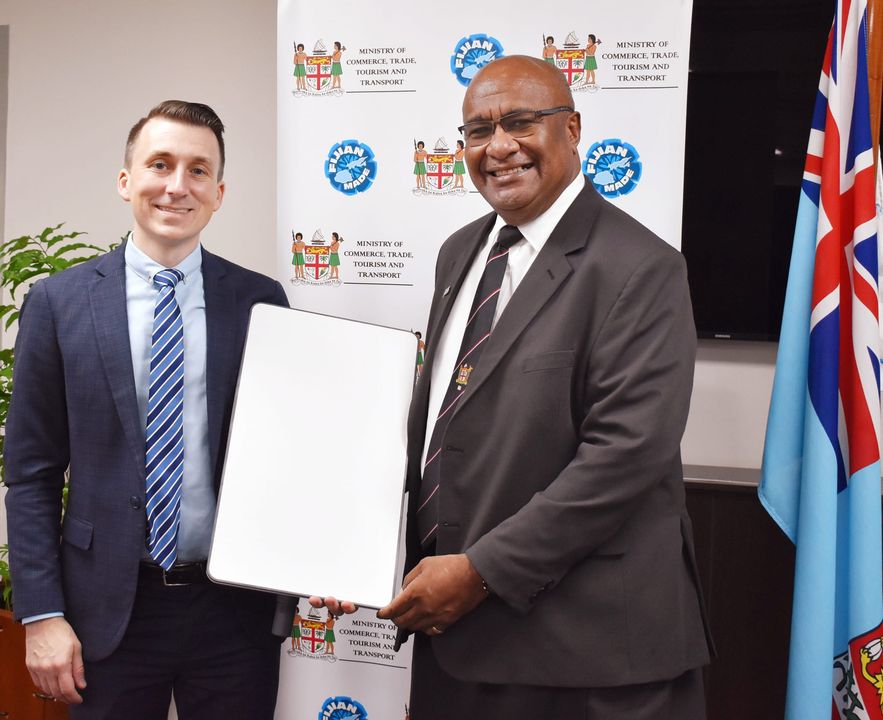Starlink is now available in Fiji!
Elon Musk, Starlink’s founder and perhaps the highest-performing member of the human species currently, was pictured with the Fijian delegation, including our head of State, President Ratu Wiliame Katonivere, launching the availability of the world’s first and largest satellite constellation using a low Earth orbit to deliver broadband internet in Fiji.
Almost like a premonition from my previous article on Indonesia being a hidden tech hub, Mr Musk launched Starlink’s presence in Fiji and other countries from Bali.
As per CNN’s report, Mr Musk was in Bali and with Indonesia with Indonesian Health Minister Budi Gunadi Sadikin launched SpaceX’s satellite internet service for the nation’s health sector on Sunday, aiming to improve access in remote parts of the sprawling archipelago.
The CEO of SpaceX and Tesla, flew in by private aircraft to the Indonesian resort island of Bali and then went to a community health centre in Denpasar, the provincial capital, to attend the launch ceremony.
Mr Musk, sporting a green batik shirt, claimed that millions of people in remote areas of Indonesia would benefit from having access to the internet thanks to the launch of the Starlink service. Three distinct time zones and over 270 million people call this country home.
“I’m very excited to bring connectivity to places that have low connectivity,” Mr Musk said,
“If you have access to the internet, you can learn anything.
“Starlink is now available in Fiji,” Mr Musk posted on X (Twitter), retweeting Starlink’s official account, which tweeted: “Starlink is now live across the 300+ islands in the Republic of Fiji, marking the 99th country, territory, or market around the world where Starlink’s high-speed internet service is available.”
But what does this mean for Fiji exactly?
Well, for one, anyone living in any part of the country, whether on a rocky mountain, remote island, or forest, will now have access to high-speed internet, provided they have purchased a Starlink ground antenna and pay the monthly subscription fee.
Starlink’s internet works by beaming internet data via radio signals through the vacuum of space. Ground stations then broadcast those signals to orbiting satellites, which relay the data back to Earth-side users.
The capacity of Starlink to deliver reliable, fast internet over great distances and difficult terrain is one of the main features the company boasts about.
While it is very expensive and difficult for traditional internet service providers (ISPs) in Fiji such as Telecom, Vodafone, and Digicel to extend their networks to rural locations since it is difficult to install infrastructure on rocky islands or put cables underwater, Starlink bypasses the need for expensive infrastructure with a simple antenna that connects directly to its low-orbit satellites.
Basically, Fijians will no longer need to rely on local ISPS for the impact of Starlink’s arrival in Fiji or any third party, able to purchase Starlink gear and directly connect to Mr Musk’s satellite network.
Impact on local internet service providers
While the beginning of Starlink’s Fiji journey is something to be celebrated, we must remember that we do have local service providers that are locally owned.
Vodafone Fiji Pte Ltd is a 100 per cent locally owned entity, of which 51 per cent is owned by Amalgamated Telecommunications Holdings (ATH) and 49 per cent by the Fiji National Provident Fund, our superannuation fund,
Telecom Fiji is a 100 per cent owned subsidiary of ATH.
There will undeniably be an impact on these providers.
Starlink’s satellite technology can bypass the need for extensive ground infrastructure, allowing it to offer high-speed internet even in the most remote areas of Fiji, and it will take customers off the traditional ISPs, which, let’s be honest, don’t have the greatest track record when it comes to service quality.
Their customer base will now have the option to turn to Starlink. Not that I’m saying our local ISPs are bad, but there are times and situations where there is room for improvement in service delivery. Perhaps the introduction of Starlink paves the way for better quality of service for Fijians in terms of internet speed and prices because of the competition it will introduce into the market, which is great for the customer.
Starlink users typically experience download speeds between 25 and 220 Mbps, with a majority of users experiencing speeds over 100 Mbps. Upload speeds are typically between five and 20 Mbps.
And with their standard plan having unlimited downloads I envision many businesses, organisations and individuals turning away from local ISPs to Starlink in the coming months.
There must be some thought around how to protect local ISPs bearing in mind that they are locally owned and contribute significantly to our economy.
Starlink on the other hand will be taking money out of Fiji and this will no doubt have economic implications for our growing economy.
Let’s not forget that the whole model of Starlink is its ability to provide remote internet services anywhere in the world meaning it will not create any significant employment in Fiji, instead taking away revenue from local ISPs who may downsize its teams as a result. Do not get me wrong, I fully support the introduction of Starlink and believe that this will take us forward, however, we must keep one eye on how it impacts the market.
Having Mr Musk associated with Fiji and tweeting about us is undoubtedly a great honour and hopefully, someday he will visit us. Musk has revolutionised many aspects of technology, from electric vehicles to space travel, not counting the countless people he has inspired to become innovators.
Being connected with such a personality can only be good for Fiji and hopefully inspire our people to become innovators in the tech world. Until next week, take care and be safe!
- ARNOLD CHANEL is an investor and business executive with years of tech expertise. He can be contacted on ceo@vanguardtech.pro. The views expressed in this article are his and not of this newspaper.



